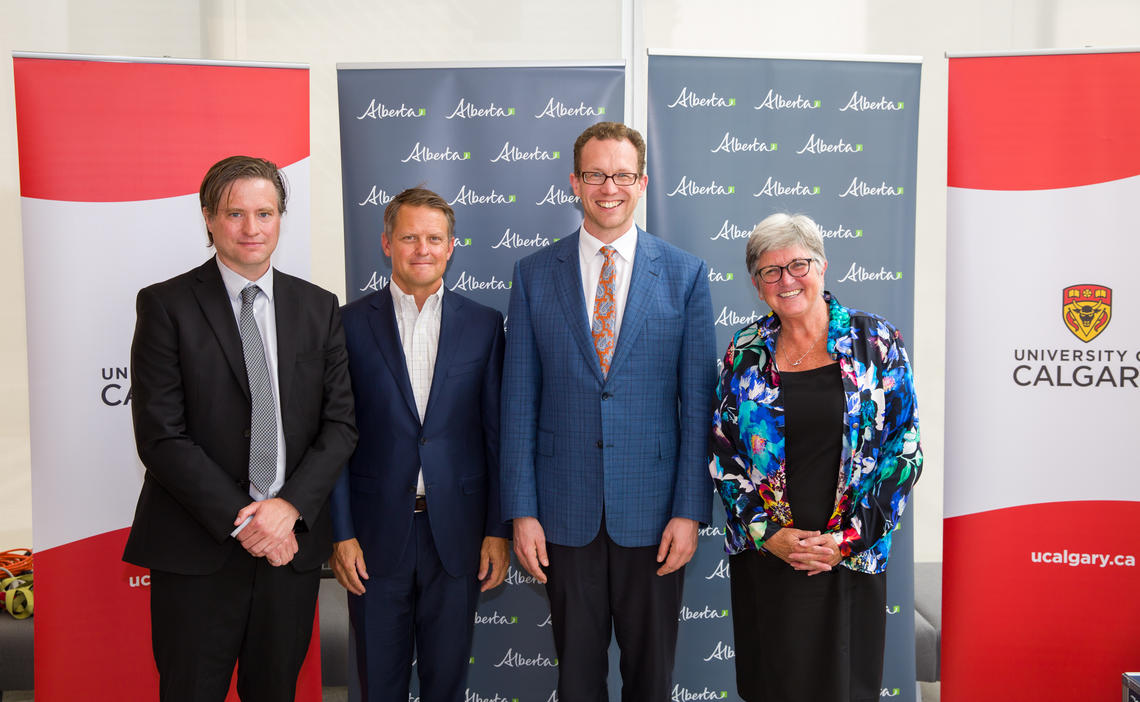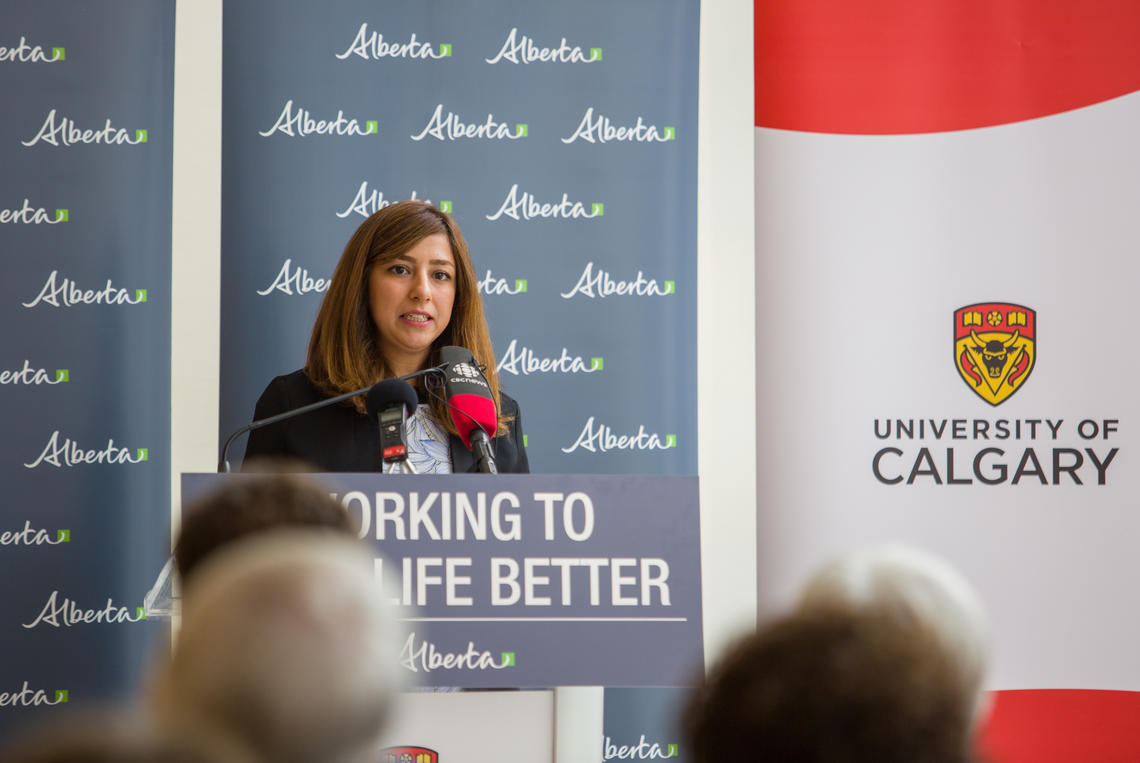Aug. 17, 2018
University of Calgary launches new master's program in software engineering

Alberta’s future is being built on a digital foundation — and thanks to a new fast-track master’s degree in software engineering, the University of Calgary can produce even more skilled graduates to help make that happen.
Advanced Education Minister Marlin Schmidt, above, second from the left, announced on Thursday that starting this September, the province will fund a new hands-on, course-based master’s degree in software engineering at the Schulich School of Engineering. The first cohort of 40 students will complete the highly focused, in-depth training as soon as eight months later.
“The University of Calgary is home to some very well-recognized technology programs, so it’s encouraging to see that the government is increasing its support in this area,” says University of Calgary Provost Dru Marshall. “We have the talented faculty and students needed to help diversify our economy, and with additional government funds we can continue to grow in technology areas.”
The new master’s program is part of a broader five-year commitment made by the Government of Alberta in the spring to add 3,000 tech training spaces across the province.
Anticipated shortage of software designers, programmers and developers
According to the provincial ministry of Economic Development and Trade, Alberta is projecting a labour shortage of computer and information systems professionals by 2025, as well as a shortage of software designers, programmers and developers. Given that half of the most in-demand skills in 2017 weren’t on the radar in the top 10 list of in-demand skills 2013, it is vital that educational programming is quick to respond to the rapid changes taking place so that graduates with the right skills fill the gaps as they emerge.
“The world is on the verge of a digital revolution that will transform how we work, live and play, and it is our responsibility to prepare students for jobs that don’t even exist today,” says Dr. Bill Rosehart, dean of the Schulich School of Engineering. “This one-year master’s degree in software engineering will provide our graduates with expertise, experience and insight to help them succeed as entrepreneurs and leaders in that digital future.”
From farming to city planning and natural resources, there’s virtually no industry left untouched by computer technology and demand for software engineers is expected to grow exponentially in the next few years and decades.

With the minister are: engineering dean Rosehart, TACT co-chair Brad Zumwalt, and Provost Marshall.
Riley Brandt, University of Calgary
Contribute to future economic machine
Graduates from the new engineering program will develop skills to build complex software systems, develop software and harness data for employers across all industries, making them invaluable contributors to the province’s future economic machine.
It is well known that gaps have emerged between the skills demanded by industry and the available skills in the workforce with hundreds of software engineering jobs remaining unfilled. The province’s move to invest in tech talent is being lauded as a positive step towards a stronger, more economically capable Alberta by industry watchers like Calgary Economic Development.
“With the wave of innovation transforming all sectors of the economy, Alberta is moving in the right direction by boosting education and training for workers in critically important tech fields,” says Court Ellingson, vice-president of research and strategy for Calgary Economic Development. “Innovation and talent are key components of our long-term economic strategy for Calgary and this investment in the development of a world-class workforce will help ensure we have the right people with the right skills to lead our economy.”
The new master’s degree is a chance for current students and engineering alumni to enhance their skills and position themselves for careers in the new economy — and that’s opportunity students like Shayan Zamani have been looking for.
One student's view: adaptability
"Employers are looking for engineers who understand computer technology and can adapt in a high-tech job market," says Zamani, who is taking master's-level software engineering courses at Schulich to complement his degree in petroleum engineering. "That adaptability is why I sought to increase my own understanding of computer technology after graduation. This new master's degree sounds like an ideal solution for engineers looking to expand their horizons."
Starting in September, the Schulich School of Engineering program will offer two streams: those with an undergraduate software engineering degree or a minor in computer engineering can fast track through the program in eight months. Meanwhile, graduates with a non-software related undergraduate engineering degree can complete specialized bridging courses and can earn the new master’s degree in 12 months.
Classes will cover subjects that include core software engineering, virtual reality, augmented reality, data analysis, project management and topics directly connected to an economic future based in digital engineering.
More information on the Master of Engineering in Electrical and Computer Engineering with a focus on software engineering program is available online. Registration is open now.
Explore existing University of Calgary expertise on Living in a Digital World.

Sepideh Goli, PhD candidate in software engineering at the University of Calgary, makes an address.
Riley Brandt, University of Calgary

